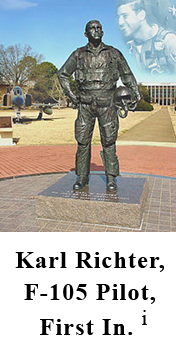If it wasn’t for people . . . leaders wouldn’t have to set the example.
Have you ever thought that the best way for you the “leader” to express your character is not by what you say, but what you do? Character is about “who you are,” but that can be expressed in “what you do;” that is, what you say AND the actions you take. Many people who think they are exercising leadership do so almost exclusively through words. Now don’t get me wrong, what a leader says can be extremely important; after all, the Bible says, “By your words you will be acquitted and by your words you will be condemned.” (Matt. 12:37). But when it comes to true leadership, whether it be a senior pastor, a CEO, or a military commander, they will be measured in large part by not only what is said, but how you the “leader” walk the talk.
I just watched an episode of “Band of Brothers.” It was a situation where an enemy position had to be taken and everyone was in fear and not moving forward. It wasn’t until the company commander made his way to the front and led the charge, that everyone else became emboldened and followed him. At Fort Benning, Georgia, at the Army Infantry School is a statue of a Second Lieutenant, “Iron Mike,” in “battle rattle” leaning forward and at the bottom of the statue it says, “Follow Me.” This of course presents the extreme situation of combat, but there are other examples where there are great risks and you the “leader” must lead from the front. If you’re starting a new company or launching a new product, do you think that unless the board and CEO invest in that venture that others will do likewise? Will parishioners financially support a church if the lead pastor doesn’t contribute? You might ask, who would know? Guess what, the Lord knows. When I was Executive Director of Officers’ Christian Fellowship, we had a large Growing and Building Campaign. I am convinced that what made it a success was the generous donations, financially and in prayer, of the OCF Council. They stepped up to the plate from day one and assumed leadership responsibility for that effort. The Lord didn’t need the Council to affect the outcome, but He wasn’t going to do it without them.
Don’t misunderstand me, you the “leader” are not expected to master every skill of the people in your organization. But where you can help, you must help, and where you can’t, at least be willing to suffer any deprivations that members of your organization must face. If you’re deployed with our Air Force and it means living on the flight line, live on the flight line. If it means sharing or observing a shift in a Minuteman Missile Launch Control Center, then be there. If you’re the CEO of a company or pastor of a church and you are forced to lay people off or cut salaries, perhaps you should consider taking a cut yourself.
There is a corollary to this, and that is you the “leader” must do the things well that only you can do. That may well mean operating outside your organization to obtain the resources and authorizations necessary to enable fulfillment of the organization’s purpose. Many times, this may well involve a personal or organizational risk that is necessary for success in the future. Only you may be able to close the big deal, see the prospective donor, or persuade government or community leaders to support your cause. But at the end of the day, if you the “leader” are to be successful in moving your organization forward, you are going to have to take the “point” either within or external to your organization. “Follow Me.” Or as Karl Richter did on his last mission during the Vietnam conflict, be first in on the target. “Greater love has no one than this, that he lay down his life for his friends.” (The words of Jesus, John 15:13) Jesus is your “greater love,” have you chosen Him as your friend?





